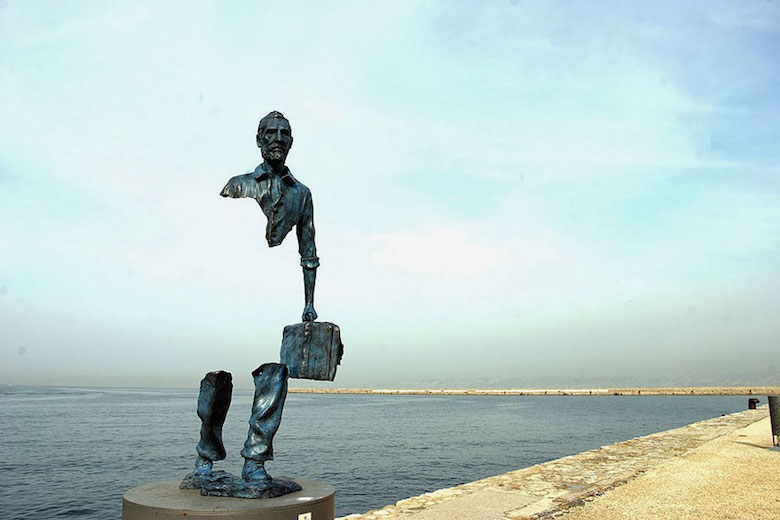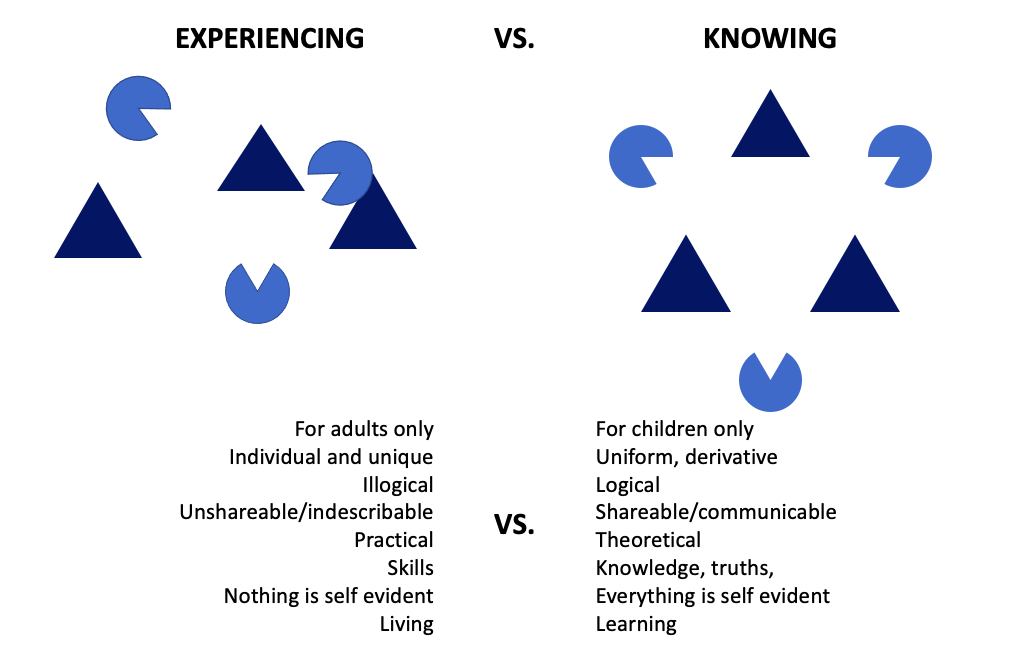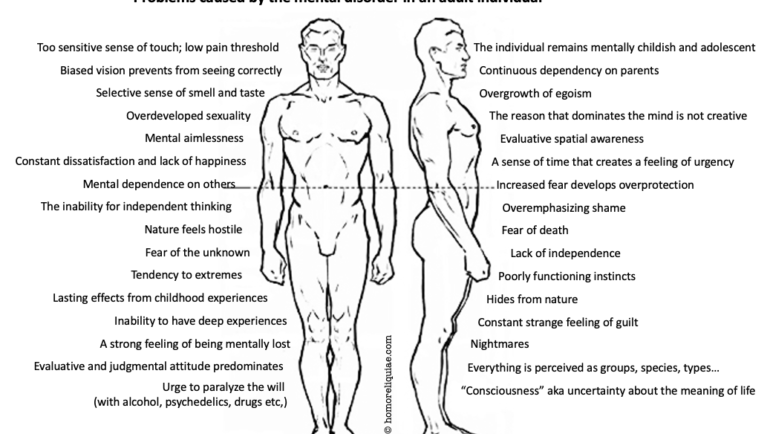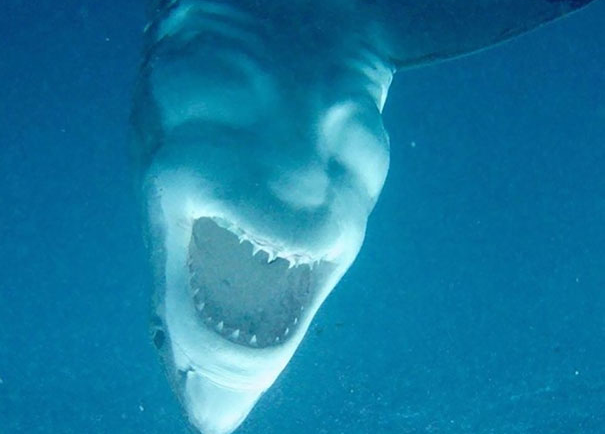The figure above (“Les Voyageurs” by Bruno Catalano) confirmed my idea that some mechanism in our human psyche must limit and modify our sensory perceptions so that our body can handle them with straightforward and idiot-proof tools. These idiot-proof instruments, like cognition, create a conceptually focused world of classes and types that we call human reality.
Human “reality” is an obvious forgery, but it is still difficult to see what is wrong. Of course, that is because we think our mental abilities are just so superior. But are they?
Our senses can hardly lie, but our brains certainly can. Our brains can also be said to modify our perception so that they supplement or broaden observations. Our tendency to increase perception is often defined as the merit of our intelligence. Because intelligence does not deal with individual and unique things, we only perceive wholes, changes, and differences. Instead of understanding unique items, we only understand species, classes, types, races, tribes, trends, lines, formulas, series, patterns, shapes, variations, etc. The intellect does not understand individual objects but recognises them as “variables” in many different categories. Items that have no class, type, etc., are intellectually irrelevant.
Similarly, variables are irrelevant without their equations. That is not a particularly positive thing. This way, life becomes dry and theoretical. So how does intelligence operate?
The outer and inner world
Understanding is the primary function of the intellect. By comparing, our intelligence creates understanding through categories and types and the changes and differences between them. What cannot be reached cannot be understood. Because we cannot compare individual things, neither can we understand them. However, sensing a unique something is the ultimate basis of all meaningfulness. We call that an experience. Therefore, understanding and experiencing are practically mutually exclusive phenomena.
Admittedly, we often claim to experience things, but hardly that happens. Experiencing is not just about being at the scene. As long as we try to understand our observations, we will not be able to experience them. And when we experience something, we cannot use our understanding to share it. They are incompatible phenomena. That can be seen with people having been taken psychedelics, cannot verbalise their experiences.
That is the nature of deep experience: it is always the perception of uniqueness. For the same reason, it is the absence of intellect and understanding and the abandonment of all classification and typing. The reason why we can’t experience the beauty of a rose or the intensity of the now-moment is that we can’t give up our attempts to understand what we sense. Even if we look at the rose, we don’t see it. Although we listen to the wind in the meadow, we do not hear it. We only understand the uniqueness in retrospect, never when it is present.
Experiencing and knowing (as a form of understanding) are mutually exclusive states of mind. The former is for adults and the latter for children. Unfortunately, modern man cannot distinguish between these. Therefore, it causes many misunderstandings when explaining consciousness and its various forms, such as mystical experience.




